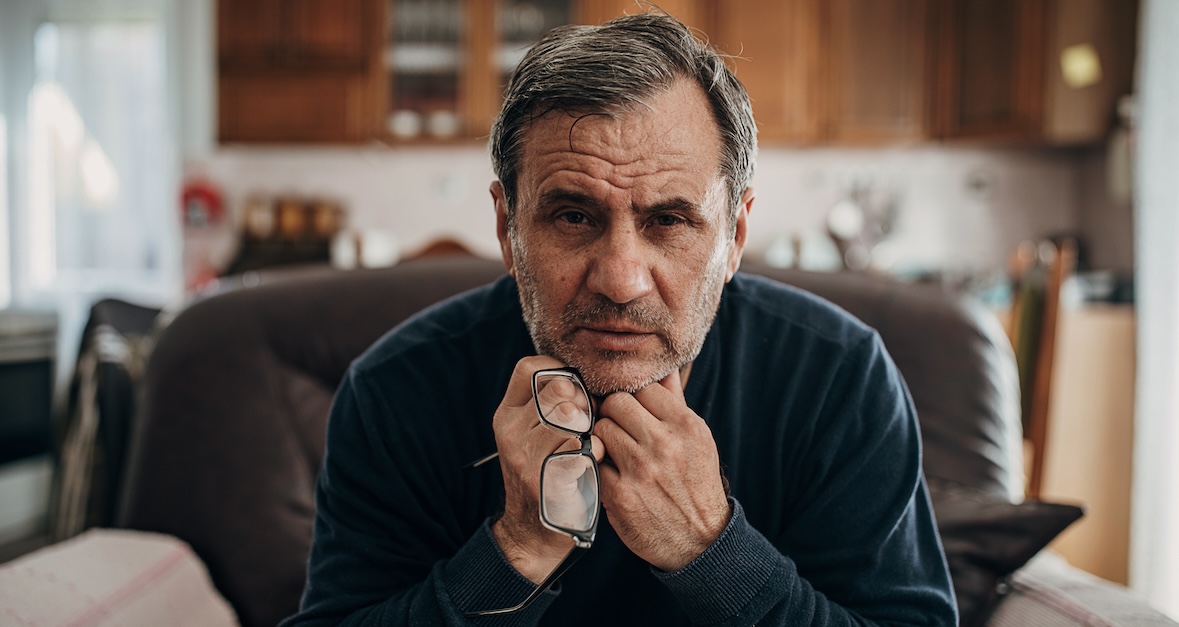Does Decorating Early for Christmas Really Make You a Happier Person?

My eyes doubled in size as I surveyed the department store chain I had just sauntered into.
It was the middle of September. Maybe October.
Okay, I don’t have the exact time memorized. But it was definitely before Halloween. Yet there, in the middle of the space, were brightly colored orbs and glittery ornaments and toy soldiers and—
Where are we on the calendar? I questioned the Christmas trees surrounding me as they stood sentry over shelves of glittery trinkets.
The only response I sensed was an urge to post the experience on Instagram story. I had never found a store stocked with holiday ornaments so early in the year before.
Which brings us to this article. How early do you decorate for Christmas?
There is absolutely no condemnation for those who are in Christ Jesus (Romans 8:1). The verse is so all-encompassing that it covers even this topic. No matter when you roll out your Christmas decorations, God does not condemn you.
Neither do I.
Besides, adorning your abode to reflect the yuletide yields recognizable benefits. For one thing, Christmas decorating stimulates dopamine, a neurotransmitter which improves our mood.
Why wouldn’t anyone welcome an extra dose of cheer? The sooner that dopamine shot is released, the better, right?
Then there’s the social aspect. People assume houses that are decorated for Christmas belong to friendly folks.
Again, who wouldn’t want to be viewed as amicable?
However, before you unbox those ornaments, let’s talk about the whys behind decorating early for Christmas—especially if it means skipping Thanksgiving decorations altogether.
Why So Early?

One answer may have to do with the perk of Christmas decorating we just touched on. If the year has been challenging, if the decrease in sunlight sours your mood (as in the case of Seasonal Affective Disorder or SAD), or if the outcome of the US elections decimated your hope, you may crave a pick-me-up in the form of hanging up garlands.
Another reason that could have sparked your decorating mode might be family relations. If tension has wreaked havoc among your relatives or difficult people reside in your family, you may dread the possibility of a showdown as everyone gathers for the holidays.
Might as well coax Bing Crosby to croon about White Christmas instead.
These reasons for decorating early are all understandable. However, please note how they boil down to one common denominator: an attempt to avoid negative emotions.
Sure, buying Christmas décor, stringing out twinkle lights, and transforming your house into your own winter wonderland can be therapeutic. But unless you resolve the root causes of your anxiety, depression, or family conflicts, the dopamine from cheerful decorations will eventually evaporate, leaving you with the same, tired worries. (This is why drugs carry the allure they do—ingesting them will spike dopamine, making the user feel tremendously better).
But please don’t resort to drugs to cheer yourself up. We’ll talk about how to better address negative emotions later.
The Importance of Thanksgiving
Seasonal decor reminds us of the occasion we’re celebrating. Glimpsing pumpkins and autumnal colors of red, orange, and yellow strewn around the house—maybe with a stitched message on pillow cases exhorting us to Give Thanks!—prompt us to pause and do just that.
The Bible instructs us to give thanks (1 Chronicles 16:34, Psalm 92:1-2, 1 Thessalonians 5:18). No wonder God repeats this command throughout Scripture. Science has discovered the many benefits of gratitude, including improved health and resilience.
Being thankful counters our brain’s tendency to focus on the negative, a phenomenon called the negativity bias, and reminds us of the good things happening all around. Spending just a few moments of gratefulness can improve your mood.
Gratitude doesn’t cause any negative side effects.
Having said that, please don’t utilize this powerful tool to squelch other feelings. Let me illustrate. Since I’m currently writing a book on grieving, stories of mourning pique my interest—including regarding a new widow who resorted to thanksgiving to fend off her grief. Whenever she felt grief approaching, she made herself thank God for anything she could think of, including—get this—the cancer that killed her husband.
Thanking God for cancer? I failed to find the Scripture for it.
The Real Relief
Whether it’s family tension, mourning the loss of a significant person in your life, feeling hopeless about the state of the world, or some other thorny issue, you will hardly feel better in the long term unless these factors are faced and resolved. That’s because negative feelings won’t permanently disappear if your go-to strategy is to hang a few ornaments or force yourself to be thankful.
Here are three practical steps to create a more lasting change instead.
1. Identify the Issue
Ask yourself, why do you want to decorate early for Christmas? Wait for the answer. It will come up on the inside, so you don’t have to think up the possible answers yourself.
The response may appear in terms of various thoughts, like I just want to, or it’s a habit by now, or something similar. Gently press the issue by asking inside again. Thanks for this initial response, but I’m curious. Is there a deeper reason for why I feel pulled to decorate early for Christmas?
Pay attention to what happens next. If someone’s face fills your mind’s eye—followed by trepidation or resentment—or if there’s another inward response that essentially tells you there is, indeed, a deeper motive for your behavior, focus on that answer.
Aim these next questions inward again: what is the problem? What are you concerned about?
2. Listen with an Open Heart
If the inward answers to these questions feel hard to swallow, keep an open heart as you go on. Skip the self-criticism no matter what you hear inside. It’s human nature only to feel safe to bare our soul when we sense no judgment from the person we’re with.
This tendency applies to you when you’re listening to your own soul, too.

3. Work on Lasting Solutions
If you understand the concerns you heard on the inside, let your heart know it. Finally, ask if there is anything you can do to resolve the matter.
Once you’ve worked on alleviating the concerns in your soul, you’ll feel a distinct change—including in your body. I’ve heard clients use words like “less stressed,” “more open,” and “lighter” to describe their internal state at the end of our therapy sessions.
Indeed, these three steps are an application of Internal Family Systems (IFS) therapy. This effective therapy model has transformed many lives, whether conerning relatively small issues or substantial ones. So, if doing the above steps facilitated some relief but the problems plaguing you feel complicated—which perhaps prompted you to escape into trimming the Christmas tree in the first place—consider finding an IFS therapist near you.
There is no condemnation for those in Christ Jesus, remember? That includes those of us who call a therapist’s office for an appointment.
Regardless of the amount of unfinished business in your soul, decorating your abode feels good. But try decorating from an unburdened state—that is, after resolving the loose ends you identified previously. In my experience, it feels much sweeter.
From my heart to yours, may your holiday season overflow with true merriment.

Originally published November 27, 2024.







